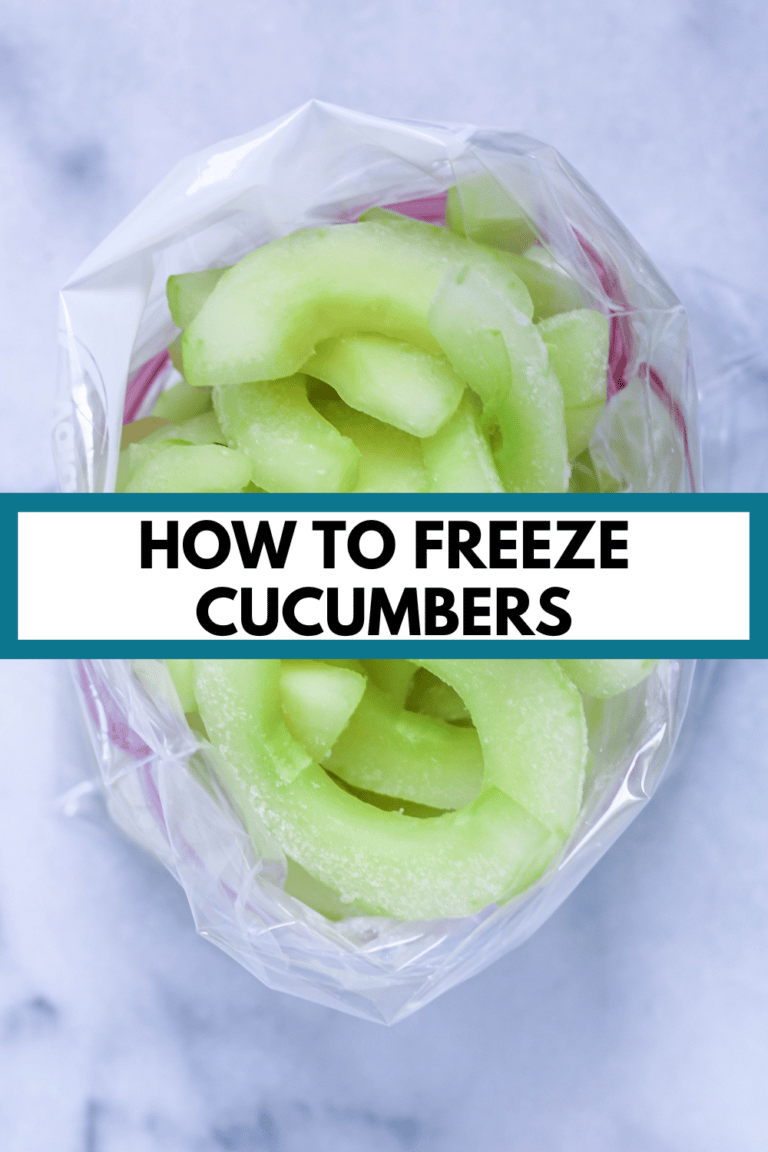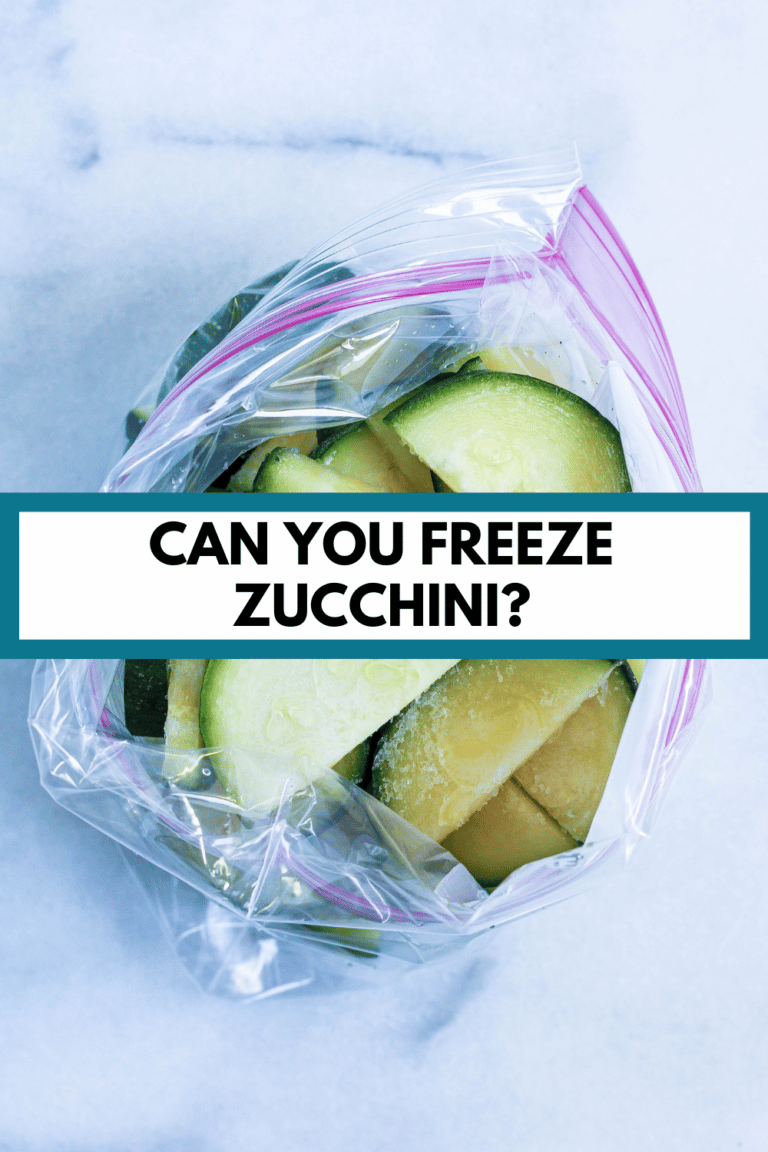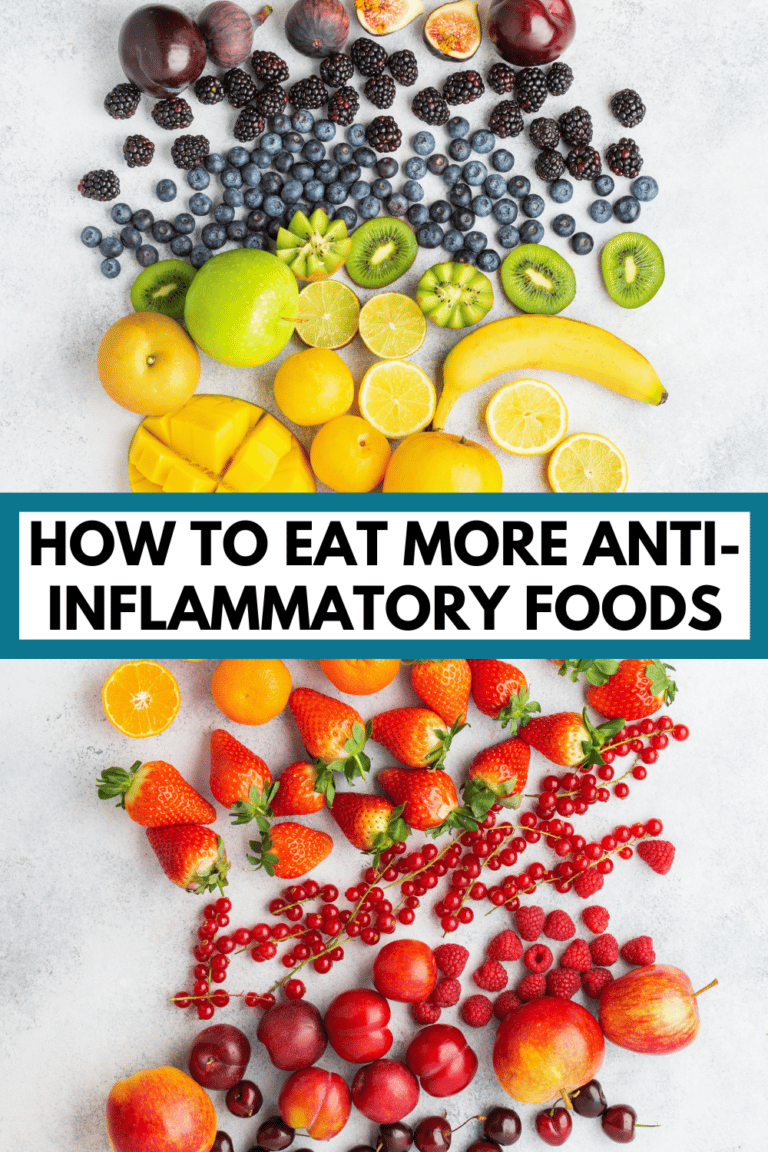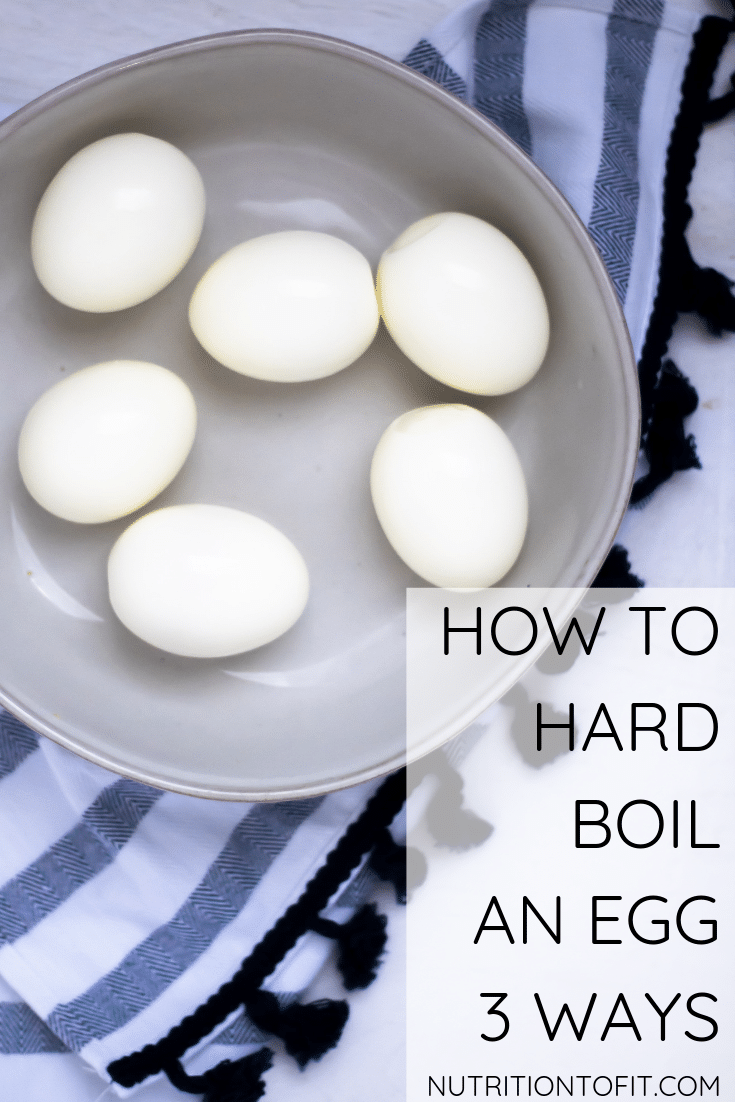Are Overnight Oats Healthy?
Overnight oats are a popular breakfast in the health and wellness community, but are overnight oats actually good for you? Well, if you’ve ever wondered, “are overnight oats healthy?” this article is for you! Written by a dietitian, it shares all the science and everything you need to know to decide if overnight oats are healthy for you. (Plus I share the answers to the most commonly asked overnight oats questions I get!)
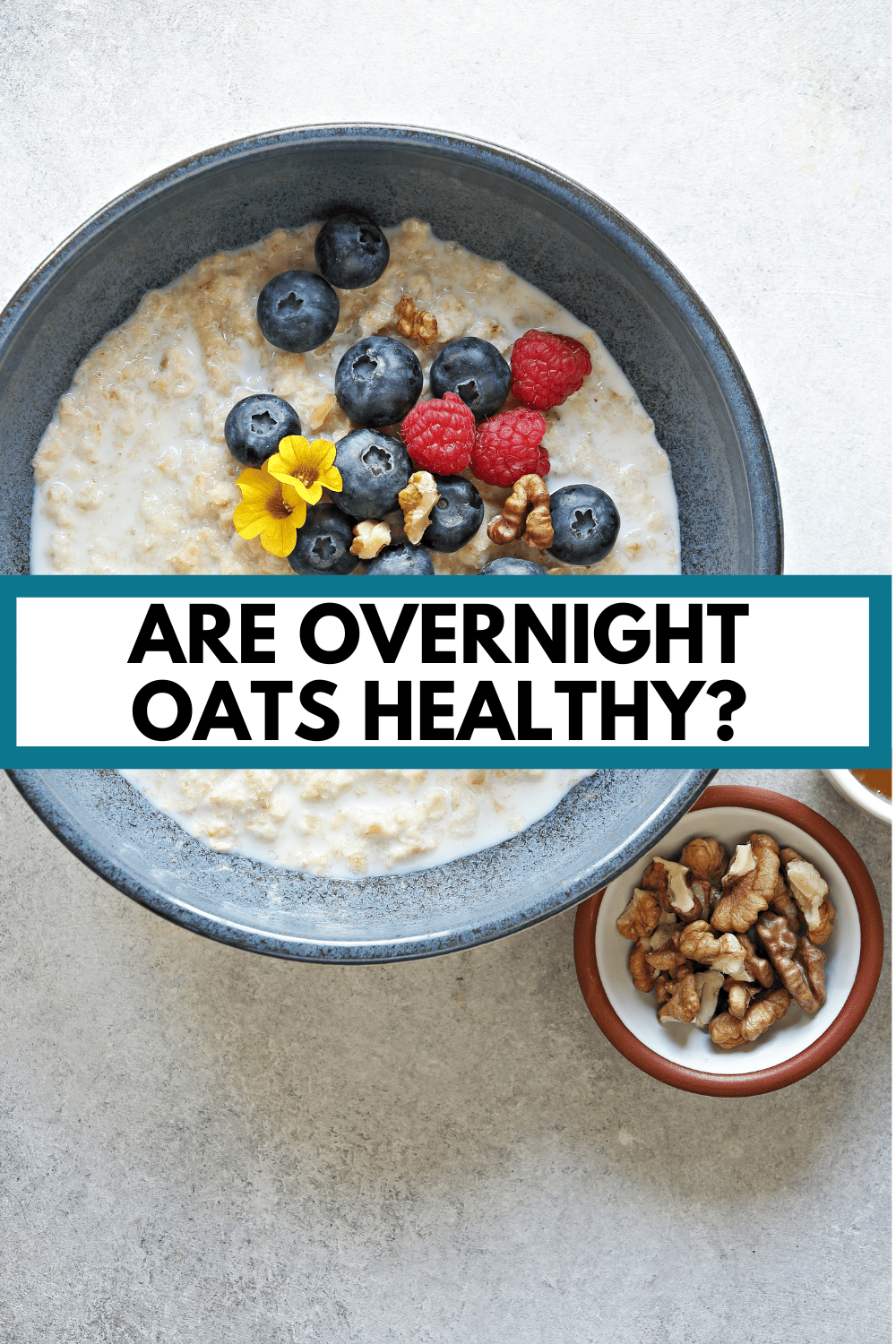
What Are Overnight Oats?
Overnight oats are basically a no-cook way to enjoy oats. They’re made by soaking oats with liquid, and often other ingredients like yogurt, chia seeds, and flax seeds.
Are Overnight Oats Healthy?
Overnight oats offer a variety of health benefits, primarily related to their high fiber content.
They also provide vitamins and minerals like manganese, phosphorus, magnesium, copper, iron, and zinc.
And depending on the specific recipe and ingredients used, overnight oats may also be a good source of protein and healthy fats.
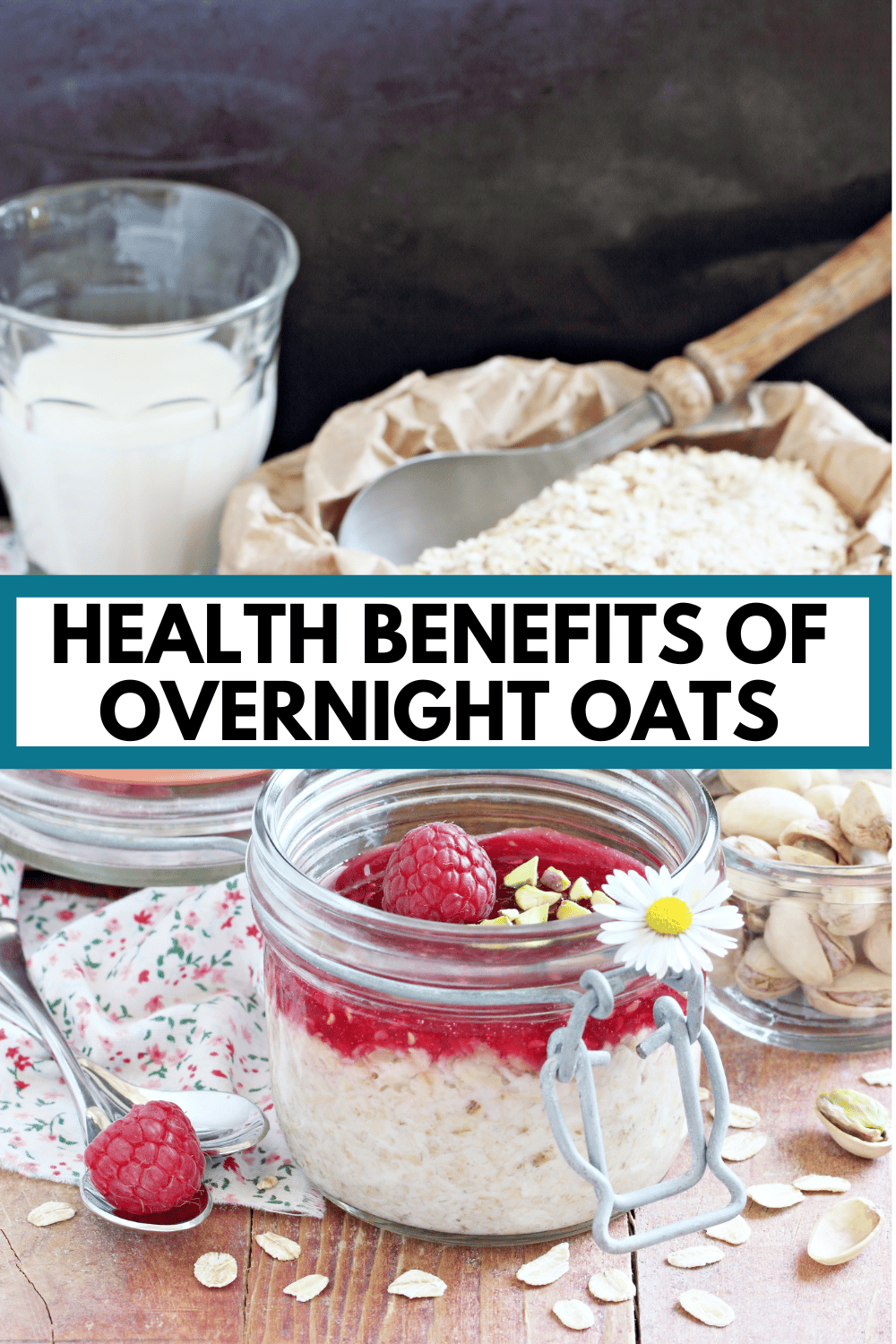
Health Benefits of Overnight Oats
As a dietitian, I don’t like to put too much health emphasis on singular foods. Why? Because our health and nutrition is not determined by a singular food, but our overall eating pattern.
That said, because overnight oats are typically an excellent source of fiber, they may help promote fiber-related health benefits.
Fiber benefits are related to a significantly lower risk for:
Additionally, increased fiber intake:
- lowers blood pressure
- lowers blood cholesterol levels
- improves insulin sensitivity (in individuals both with and without diabetes)
And while weight is not the end-all, be-all defining measure of health, fiber supplementation in obese individuals can significantly enhance weight loss.
Calories in Overnight Oats
The amount of calories in overnight oats varies greatly depending on the recipe or brand you’re buying. Many basic recipes contain around 215 calories (which, PSA, would not be enough for a full meal for most adults).
My go-to Protein Overnight Oats contain 340 calories, but are a more balanced meal with 37 grams of protein, 11 grams of healthy fats, 28 grams of carbohydrates, and 10 grams of fiber.
Can Overnight Oats Help You Lose Weight?
Overnight oats can be an incredibly nutrient-dense, nourishing meal, but do they help with weight loss? Well — it depends.
I know “it depends” is a frustrating answer, but it’s true.
Ultimately weight loss comes down to being in a calorie deficit. But if you find overnight oats satisfying, especially if you’re eating higher protein and fiber ones, they can absolutely be part of a successful weight loss journey for you.
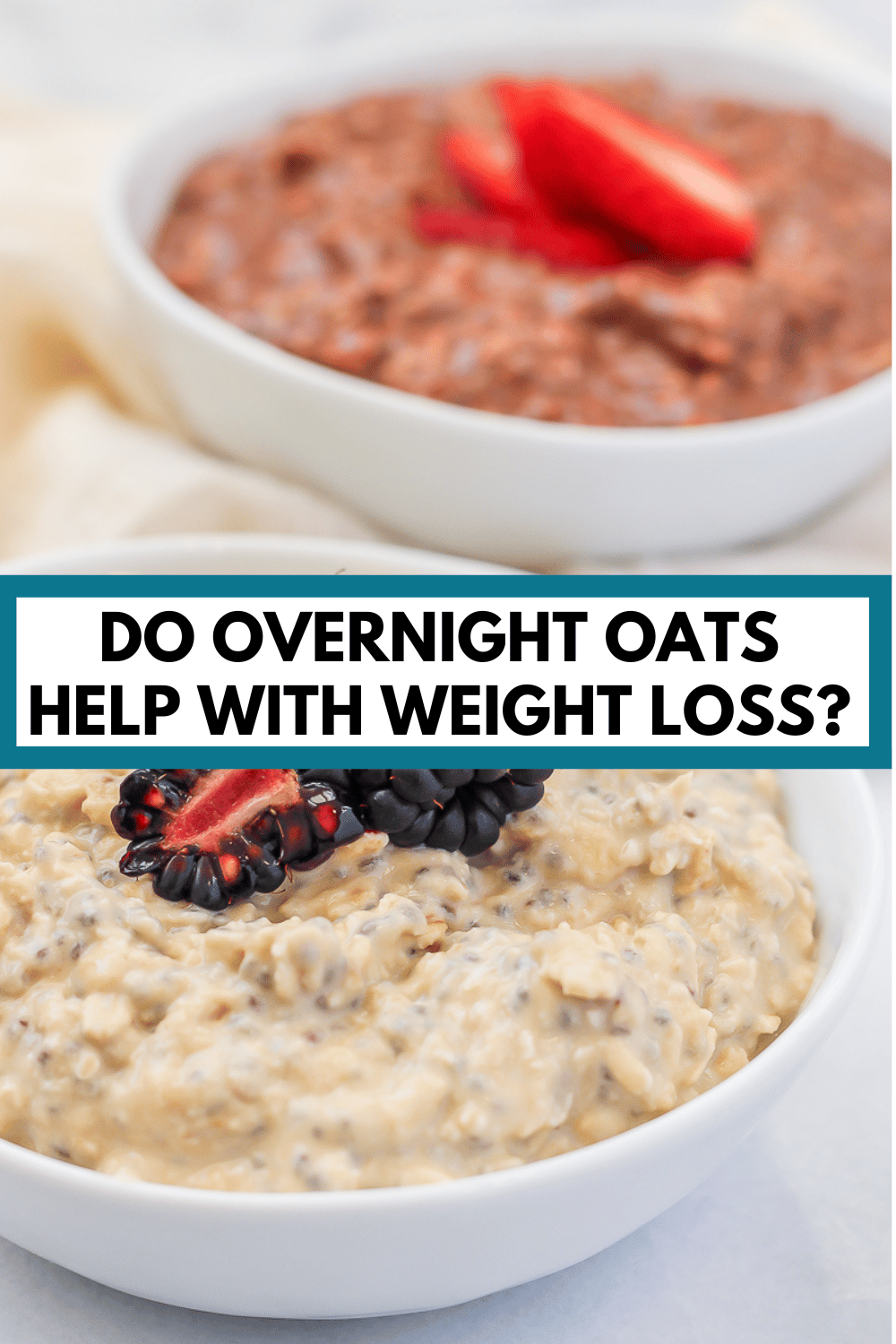
Downsides of Overnight Oats
As a dietitian, one disadvantage I see in many overnight oats (both recipes and ready made) is that they’re too low in protein for a balanced meal. I typically recommend most clients aim between 20-30 grams of protein at a meal, and many overnight oat recipes fall well below that benchmark.
Additionally, many folks are eating 200-ish calorie overnight oats for a meal, and then wondering whey they’re still hungry and grazing/ snacking/ binging later. And it’s because that’s not enough food for a meal. You can still eat the 200 calorie oats, but add additional toppings (like fresh fruit and nut butter) or pair them with something else (like a protein smoothie or egg scramble).
Are Overnight Oats Safe? Overnight Oats & Phytic Acid
Overnight oats are perfectly safe to consume. Some folks get concerned about phytic acid in oats, dubbing it an “anti-nutrient” as phytic acid can slightly inhibit some nutrient absorption (iron, zinc, and calcium) at the time you’re eating that current meal.
Research shows us that phytic acid is rarely a concern if you’re eating an overall balanced diet.
But, if you’re concerned about the phytic acid content of oats, rest assured that soaking foods higher in phytic acid, especially overnight, is one way to reduce phytate content (study 1, study 2).
Overnight Oats vs Cooked Oats
Are there any differences between overnight oats and cooked oats? Nutritionally speaking, not really! Overnight oats and cooked oats are fairly nutritionally equivalent – although of course there are nutrient differences depending on how they’re prepared and other ingredients added.
The main difference between overnight and cooked oats is a textural difference. Cooked oats are typically a little softer and more liquid whereas overnight oats retain a tiny bit more of the oat structure.
The Best Overnight Oats Recipe
Generally, overnight oats recipes use a 1 part oats to 1.5 parts liquid ratio. There’s a lot of wiggle room and things that can impact this, though – adding Greek yogurt, chia seeds, flax seeds, protein powders, and more.
My BY FAR favorite overnight oats recipe are these Overnight Oats with Protein Powder. They make a much more balanced breakfast, with 37 grams protein, 11 grams healthy fat, and 10 grams fiber!
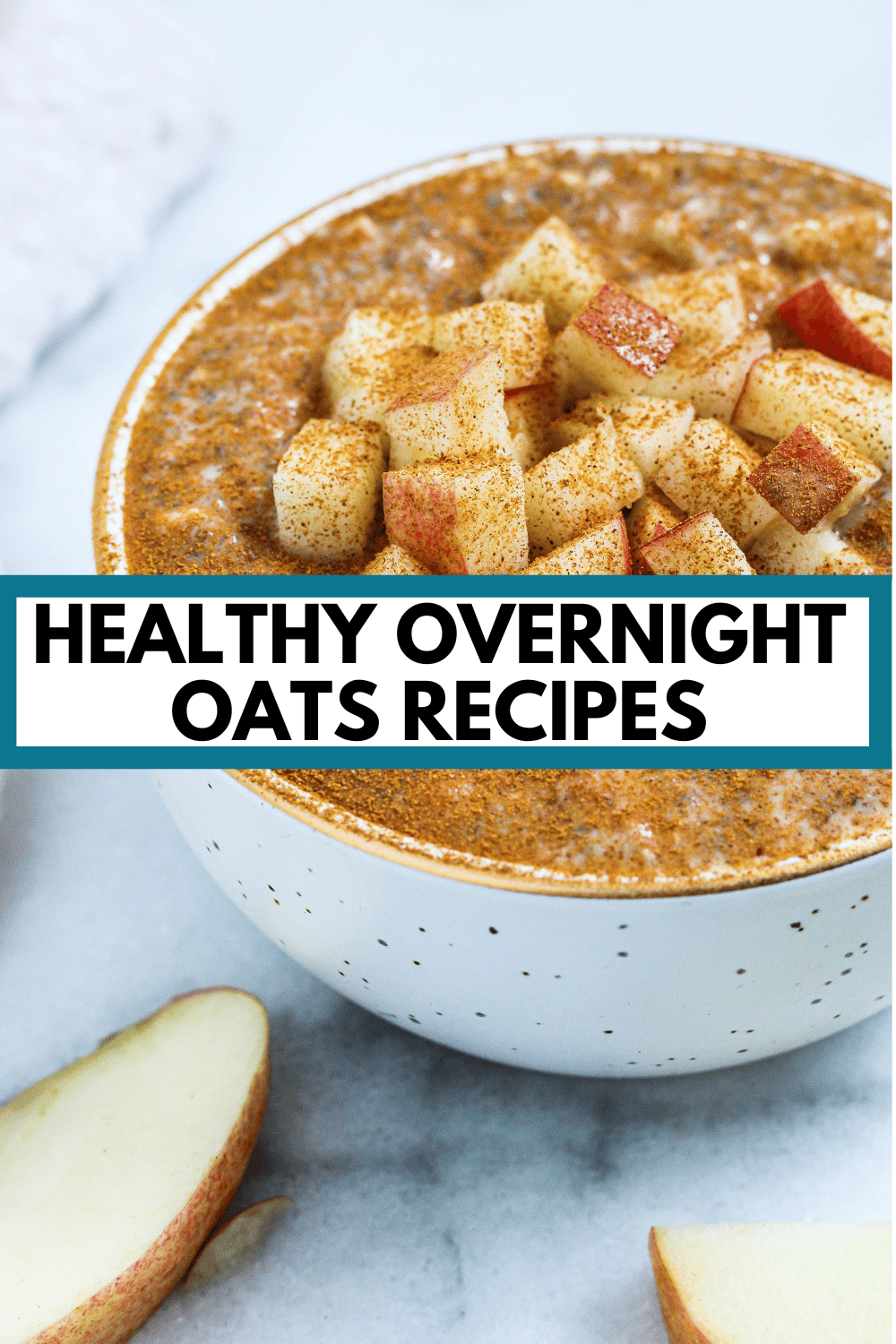
Overnight Oats Q&A
I’ve written several overnight oats recipes and have gotten a lot of questions about overnight oats over the years, so in the spirit of keeping everything in one place/ having one resource, here are the answers to a few more common questions I get:
What’s the best jar for overnight oats?
You can use whatever container you have for overnight oats. I’m partial to a 16-ounce wide mouthed mason jars, but many folks love Weck jars, too.
Do you eat overnight oats cold?
Overnight oats can be eaten hot or cold, but most often are consumed cold.
Can you freeze overnight oats?
You can freeze overnight oats! I suggest freezing overnight oats in individual portions. Place them in an airtight container (even a zip top plastic bag can work) and freeze up to 3 months.
Thaw them overnight in the fridge.
Can you heat up overnight oats?
You can heat overnight oats, either on the stove top or in a microwave. You may need to add an extra tablespoon or two of your preferred milk, as sometimes heating can lose some moisture and affect the texture.
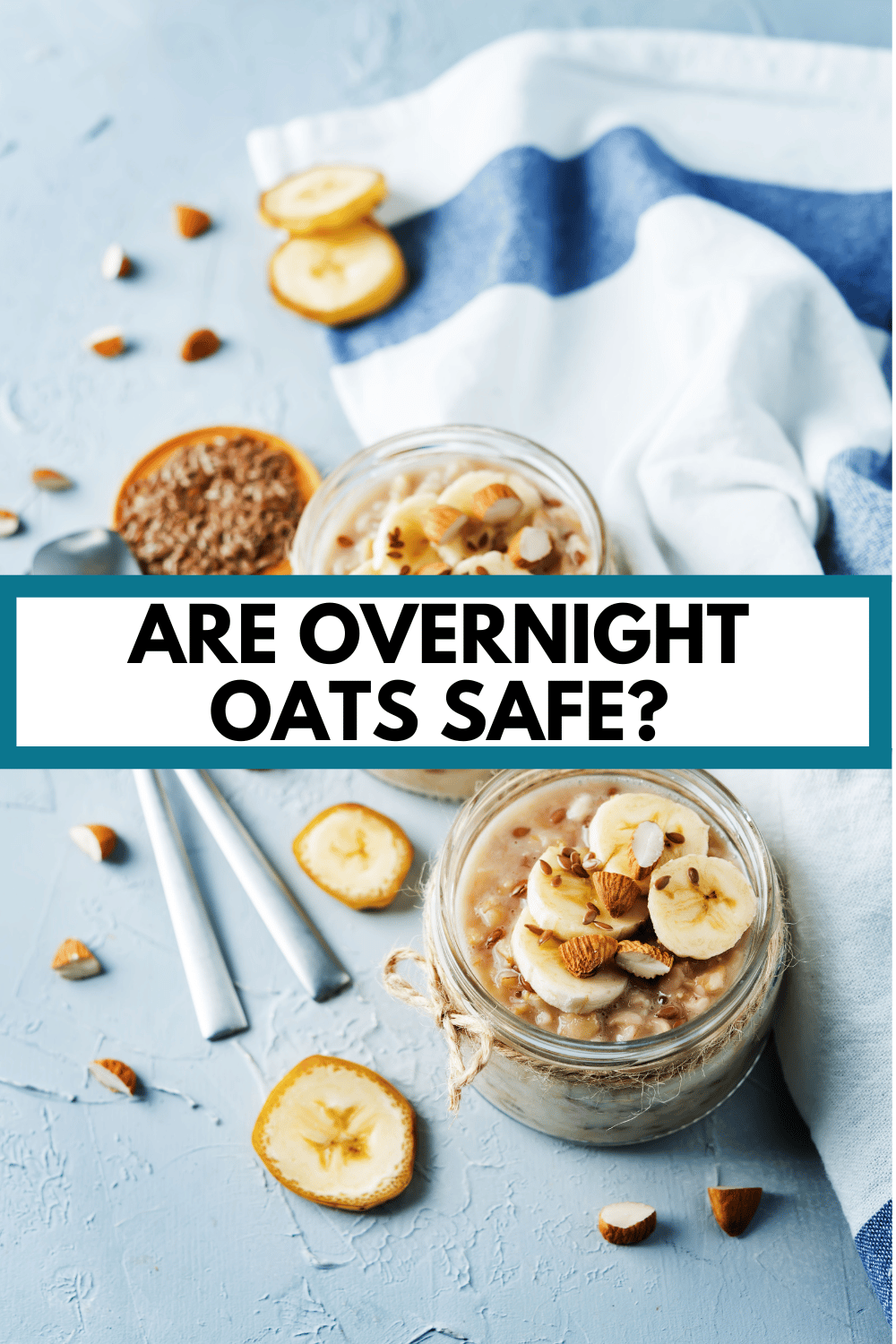
Can you microwave overnight oats?
Yes, microwave overnight oats (without toppings) for one minute, then give a stir and heat an additional 30 seconds if needed until it’s the temperature you want.
Stir again and add a splash or two of milk if needed (something they get thicker when microwaved). Add any desired toppings and enjoy!
Are overnight oats gluten-free?
Overnight oats are gluten-free as long as you use certified gluten-free oats.
Are overnight oats dairy-free?
Overnight oats can be dairy-free so long as you’re using a plant-based milk alternative. Additionally, many overnight oats recipes call for yogurt, so use either dairy-free yogurt or a yogurt-free recipe. And of course be sure any toppings are dairy-free, too.
Are overnight oats heart healthy?
Generally speaking, yes, overnight oats are heart healthy due to their high fiber (especially soluble fiber) content.
Learn a bit more about fiber and other high fiber foods here!
How long do overnight oats last?
Overnight oats will last 3-5 days when refrigerated in an airtight container.
What type of oats should you use in overnight oats?
Old-fashioned oats are the most common oat used in overnight oats recipes. You can use quick oats or steel cut oats, but you need to use a recipe specifically for them. Quick and steel cut oats require different amounts of liquids and impact the absorption time.
Overnight Oats Recipes
If you’re looking for some more overnight oats recipes to try, here are some of my favorites:

